Warhammer 40,000: Dawn of War II
A new dawn for the RTS?
Squad leaders level up, too, granting you an attribute point each time to spend; you might choose to improve his "taunt" (read: tanking), or double his range and damage with a "focused fire" skill. It's pure action-RPG: with almost every map, your force will become more powerful, more efficient, more spectacular. If traditional single-player RTS gaming is a series of crescendos, then the Dawn of War II campaign will be one single, extended one.
Maps seem fairly linear - the one we see, anyway, which is a push through a tangle of jungle to a mechanoid Ork boss called Bonesmasha, whose area-of-effect and line-damage attacks need to be juggled carefully between squads while you shower him in grenades. Diversions will exist in the form of territory-capturing side objectives, earning you recovery and reinforcements at some risk - the Shrine capture we witness requires a sustained and bloody fight. These also feed into a meta-game that tracks morale across entire sectors, giving you long-term squad benefits, and once captured they remain so - all maps are persistent.
The campaign, Relic promises, will be less linear. Relic's only talking about the Space Marine campaign at the moment, refusing to confirm whether or not there will be others in the shipping game. It involves an attempt to protect three planets from a massive invasion, but there will always be a choice of several missions, of several fronts to drive the story forward on. Fantastically, the entire thing will be available to play in two-player co-op. Relic isn't talking about competitive multiplayer yet, however.
We're shown four squad Sergeants in action - the Force Commander, Assault Marines, Devastator Marines and Scout Marines. Scouts sneak behind enemy lines to outflank and lay traps, Devastators are weapons specialists who lay down heavy gunfire, but the most spectacular have to be the Assault Marines, who use jetpacks to leap from behind cover and land instantaneous surprise attacks right in the heart of the enemy force. There's a tremendous and gratifying impact to this commander ability, so much so that it actually deforms the ground where they land - enough for it to provide light cover.
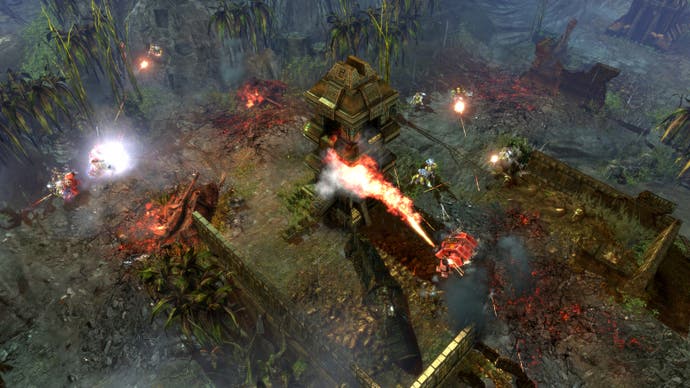
Although units are expendable, if a squad commander falls, he can always be revived after the fight - Relic say that, if it wants to make RTS gaming more accessible, it should almost always be possible to recover from a mistake. Squad mates have to be replaced by reinforcements from a drop pod, which naturally makes a lot of noise and mess with its arrival. Relic wants the environment to be "a big player" in the game, and isn't afraid to put it on the player's side - there's no fog of war, so lines of sight are only a problem for the enemy. All the better for ambushes from behind walls, or even from within the protection provided by buildings.
If we had one complaint - and at this stage, coming up with complaints about Dawn of War II is not that easy - it's that destructibility and terrain deformation look a little crude and unconvincing when held up against the best current technologies. But even this can't damage the strong and satisfying physicality of the game, engendered by the excellent animation, potent effects and sound, and bright, characterful art. More than any other - even than Company of Heroes - this looks like being an RTS where you really feel the action on the ground.
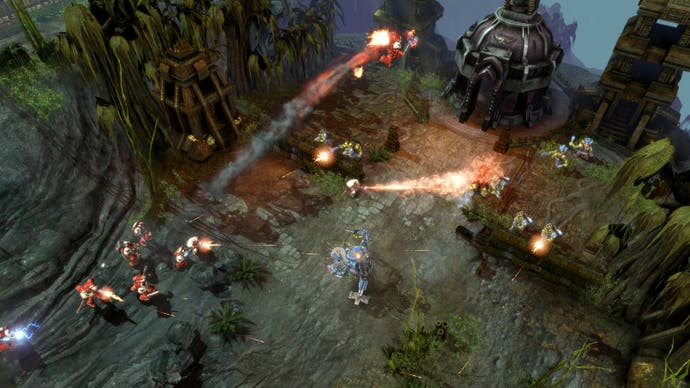
Add an almost total lack of barriers or chores between the player and the action, and a mouth-watering advancement system that should drip-feed depth while keeping the game supremely accessible (and indulging in a bit of collectible loot fever to boot), and Dawn of War II looks hugely enjoyable, like it might be the RTS that could finally break the barrier. Let's hope so - we really don't want to be writing that introduction again this time next year.

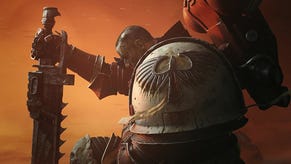

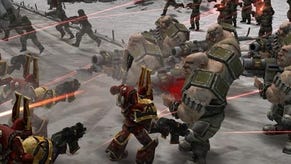
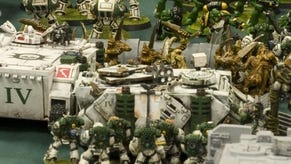


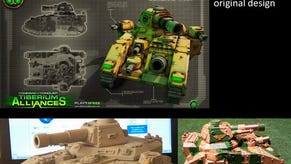

.png?width=291&height=164&fit=crop&quality=80&format=jpg&auto=webp)




.jpg?width=291&height=164&fit=crop&quality=80&format=jpg&auto=webp)
